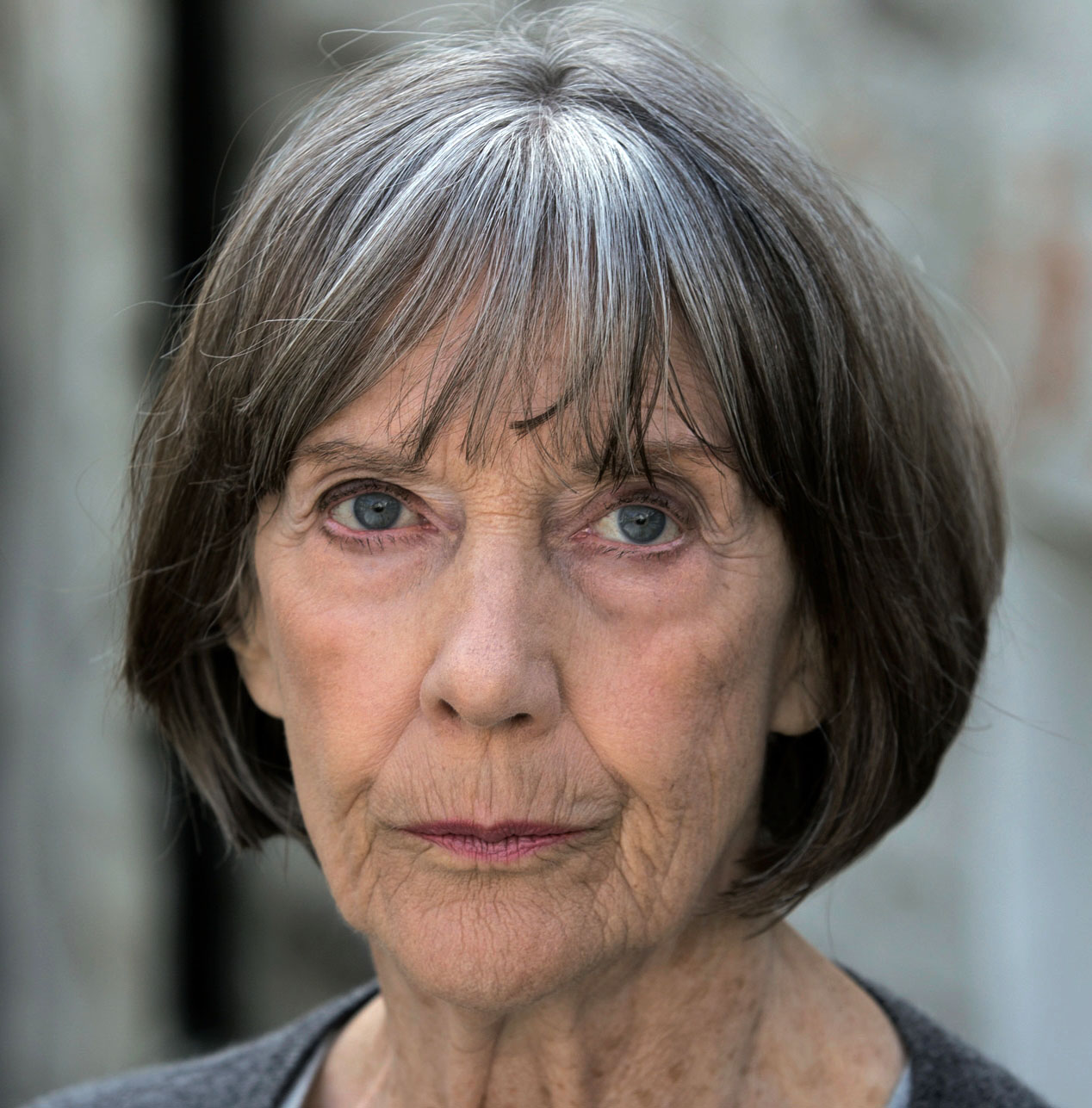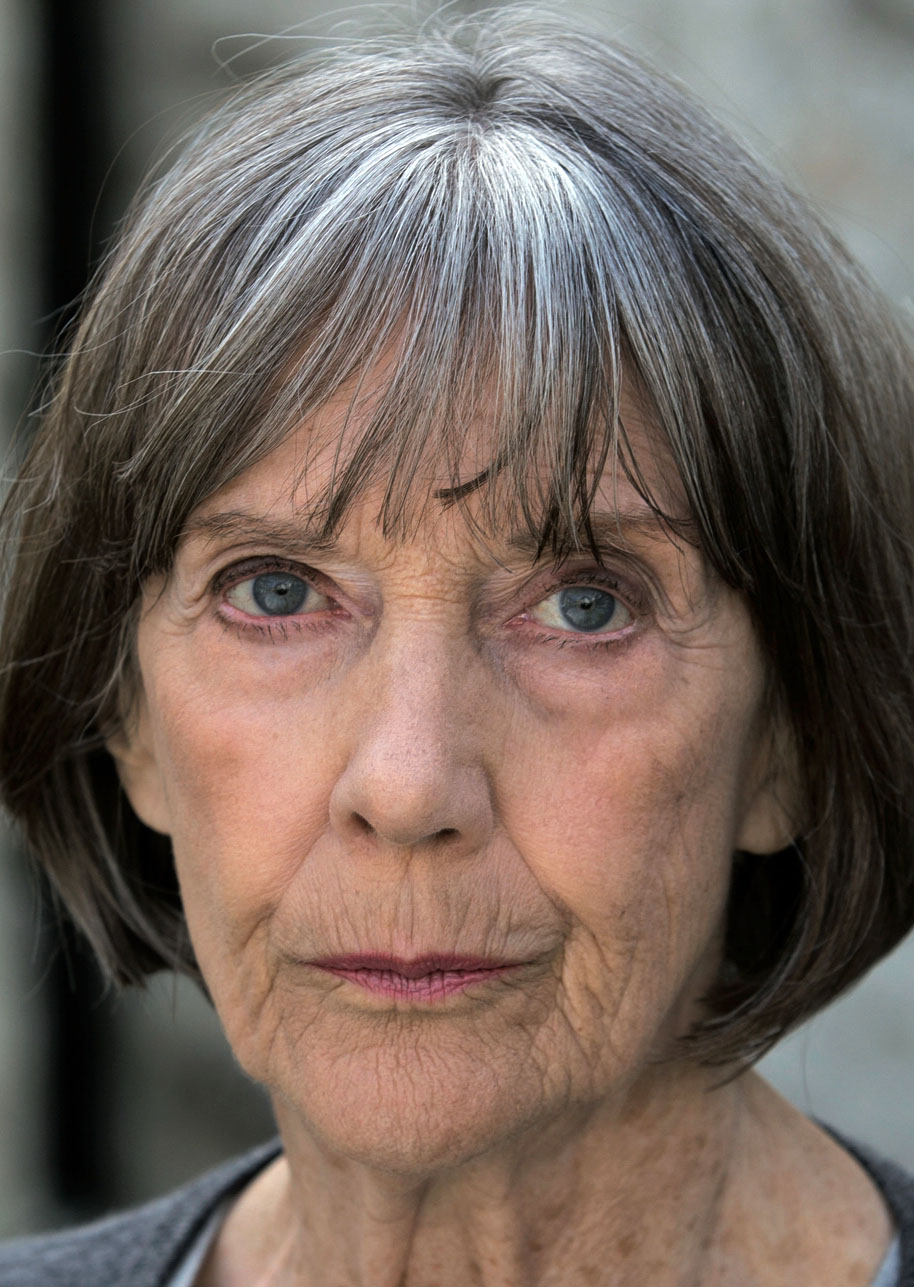 Dame Eileen Atkins plays Madeleine in Florian Zeller’s The Height of the Storm, alongside Jonathan Pryce, which has just finished at the Theatre Royal Bath prior to opening at Wyndham’s Theatre in the West End on 2nd October for previews.
Dame Eileen Atkins plays Madeleine in Florian Zeller’s The Height of the Storm, alongside Jonathan Pryce, which has just finished at the Theatre Royal Bath prior to opening at Wyndham’s Theatre in the West End on 2nd October for previews.
Three-time Olivier Award-winning actress and four-time Tony Award nominee, Dame Eileen Atkins’s many major television roles include her BAFTA and Emmy Award-winning performance as Miss Deborah Jenkyns in Cranford, and the roles of Lady Maud Holland in Upstairs Downstairs and Ruth Ellingham in Doc Martin.
What attracted you to The Height Of The Storm?
Jonathan Kent really. He’s a friend and I’ve worked with him before. When he mentioned it to me I was doing another play so I had to say ‘I can’t do it, Jonathan’ but I read it out of interest and liked it very much. Then the other play fell through, so here I am doing it.
How would you sum up the character of Madeleine?
She’s wonderfully unsentimental. She’s very pragmatic and staunch and without her the family might collapse. She’s a very straightforward, ordinary, unsentimental woman.
Can you relate to her in any way? And what are the big differences?
[Laughs] Yes because I am a very ordinary, straightforward, unsentimental woman. The only difference between me and Madeleine is that I haven’t spent my whole life looking after my husband. I’ve had a career. Madeleine has spent her life with her husband. That doesn’t mean to say she’s made herself a slave or anything like that, but she has chosen to just be with him. That’s the big difference between her and me.
Does the role present any specific challenges for you?
Oh yes, there are huge challenges in this. There are time changes which are very subtle, and you’ve got to shift and change all through the play. It changes sometimes sort of in the middle of scenes. The structure of the play is extremely difficult to pull off.
What do you see as the key themes of the play?
I would say there’s one big theme and that’s loss. It’s about losing someone who is extremely close to you.
What do you feel makes Florian Zeller stand out as a playwright?
He has tremendous originality, I think. He really is an original. I don’t know anyone else who is writing in that way. Of course, the play is very French, and I love French plays. I love Yasmina Reza, I love Marguerite Duras, so I’m drawn to French plays anyway.
Why do you think Christopher Hampton is so revered as a translator?
Christopher Hampton is probably the best translator in Britain. I’ve done so many French plays, and it’s always been his translation or most of the time. Also, he doesn’t go ‘You absolutely must say what I’ve written’. If you go to him and say, ‘I don’t speak French but I don’t like this word, what would it be in French?’ he’ll either prove why it should be that word or he’ll say ‘Alright, what do you think you’d say, then?’ He adapts a bit.
This is the first time you and Jonathan Pryce, who plays Andre, have worked together on stage. What are you most enjoying about the collaboration?
Getting to know him is a joy. He’s a great actor and I’ve never worked with him before. I’ve always been interested to learn about his method – how he gets to where he is when you finally see the performance. Fingers crossed, I hope and think we work very well together because I like his way of working.
You mentioned having worked with Jonathan Kent before. What are his special qualities as a director?
I won’t say there aren’t two or three other directors who have the same quality, but he has both an ear for the dialogue, but also has an eye for how things should look. I will never forget at the end of Diana Rigg’s Medea that no Medea could have had a better send-off on her chariot than she had. Everybody else sits round and says ‘My God, how are you going to do that?’ but Jonathan always pulls it off. I think he makes people look good – not that we need to look good in this – but he does make people look good. Again, it’s nothing to do with this play, but he’s very good at making people look glamorous.
Given your long and distinguished career, what have been the highlights?
Well, of course the first thing I was successful in, when I was 32, was The Killing Of Sister George. It was massive, and I’d suddenly been found, then you went to Broadway and you were found all over again. That always stands out, especially as we thought it was going to be a disaster. We did a tour and it was a total disaster, then we came into the West End and it was this smash hit suddenly. The highlights really in my career are the fact that I worked with people like Laurence Olivier, Paul Schofield and Alec Guinness and they all asked to work with me again. That is the biggest compliment you can have. I mean, that’s better than good reviews. When someone like that wants to work with you again it gives you such confidence.
What are the particular pleasures of doing theatre?
Oh, everything really. The immediate audience response, not being stopped all the time but being able to keep going – that gives you a kind of fulfilment. Every night you feel you’ve been through something, you’ve done it, and if it’s been appreciated you feel you’ve achieved something every night. I find filming excessively tedious, actually.
Do you have any pre- or post-show rituals?
Actors nowadays don’t wear much make-up and it’s not like I wear a lot of make-up myself but I like to have a mirror in the dressing room and a make-up place. I like to put a few things out. In the old days we used to put on a lot of make-up. I used to love sitting and sort of seeing myself slowly becoming the person. Now, as I say, we don’t do so much of that and I think it’s quite sad but it’s because of different lighting. But I still do something to my face, even if I don’t have to look good; I start to look at my face and think about being the person I’m playing. I like that half an hour before we go on and I also like to go round and say hello to everybody in the cast. I don’t just go to my dressing room, not see anybody and then see them on the stage. I like to see them as a person, then know I’m going to meet them on stage as someone else.
What do you most hope audiences will take away from seeing The Height Of The Storm?
I hope it doesn’t make them too sad. I hope it calms them a bit. I hope it makes them feel peaceful, but I think it might make some people feel sad.
The play calls at Bath Theatre Royal. Does it have a special significance for you?
Years ago, I did my one-woman show A Room Of One’s Own there and that was very exciting because I’d only done it at The Hampstead Theatre Club and this American producer came over and said ‘I can put you on Broadway’. Well, it was Off-Broadway but the theatre was on Broadway. He said ‘We’ll just do one week in Bath, then you’ll come to New York’ and I dreaded it because I thought ‘I’ll never pack the Theatre Royal Bath with a one-woman show’ and I always have a terrible fear no-one will come and see me, but we were packed every night. That was joyous because it gave me a wonderful kick-off to go to New York


